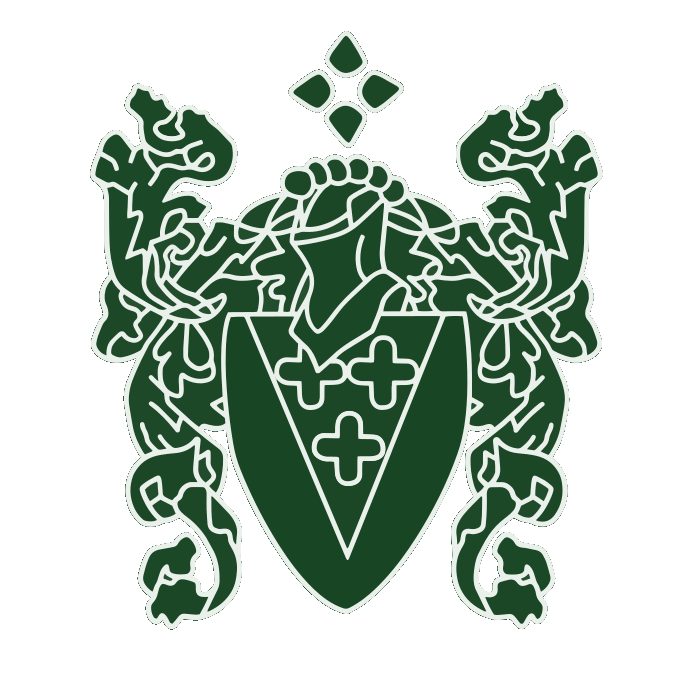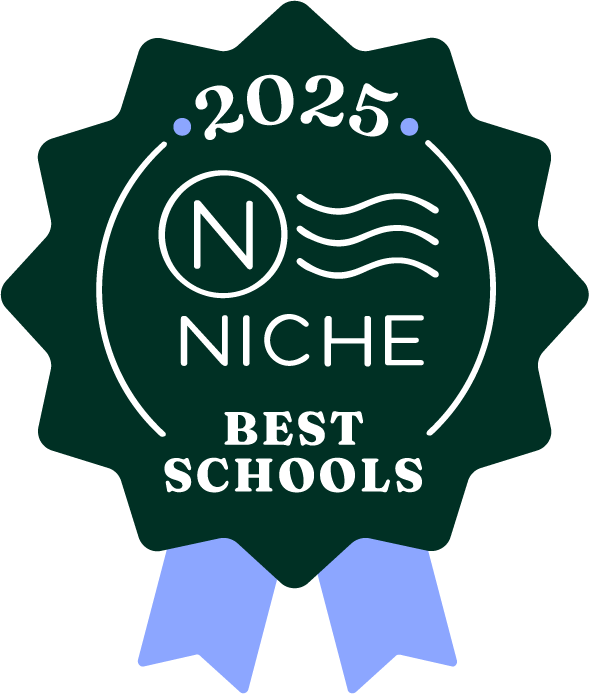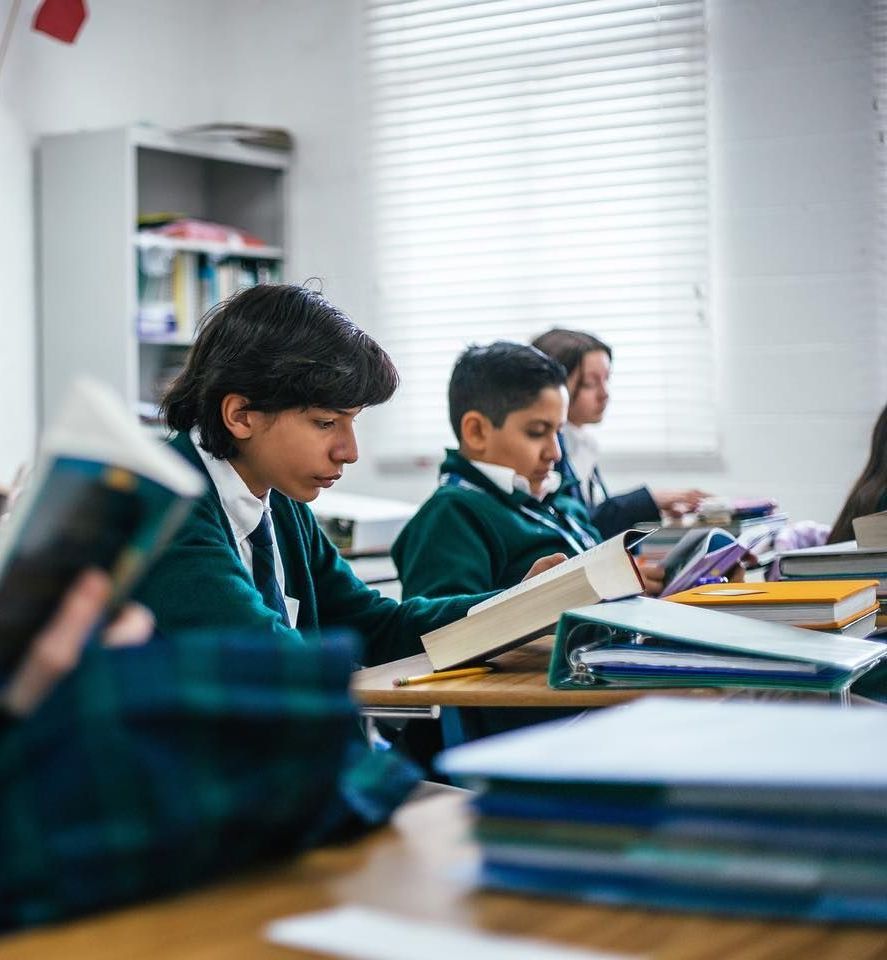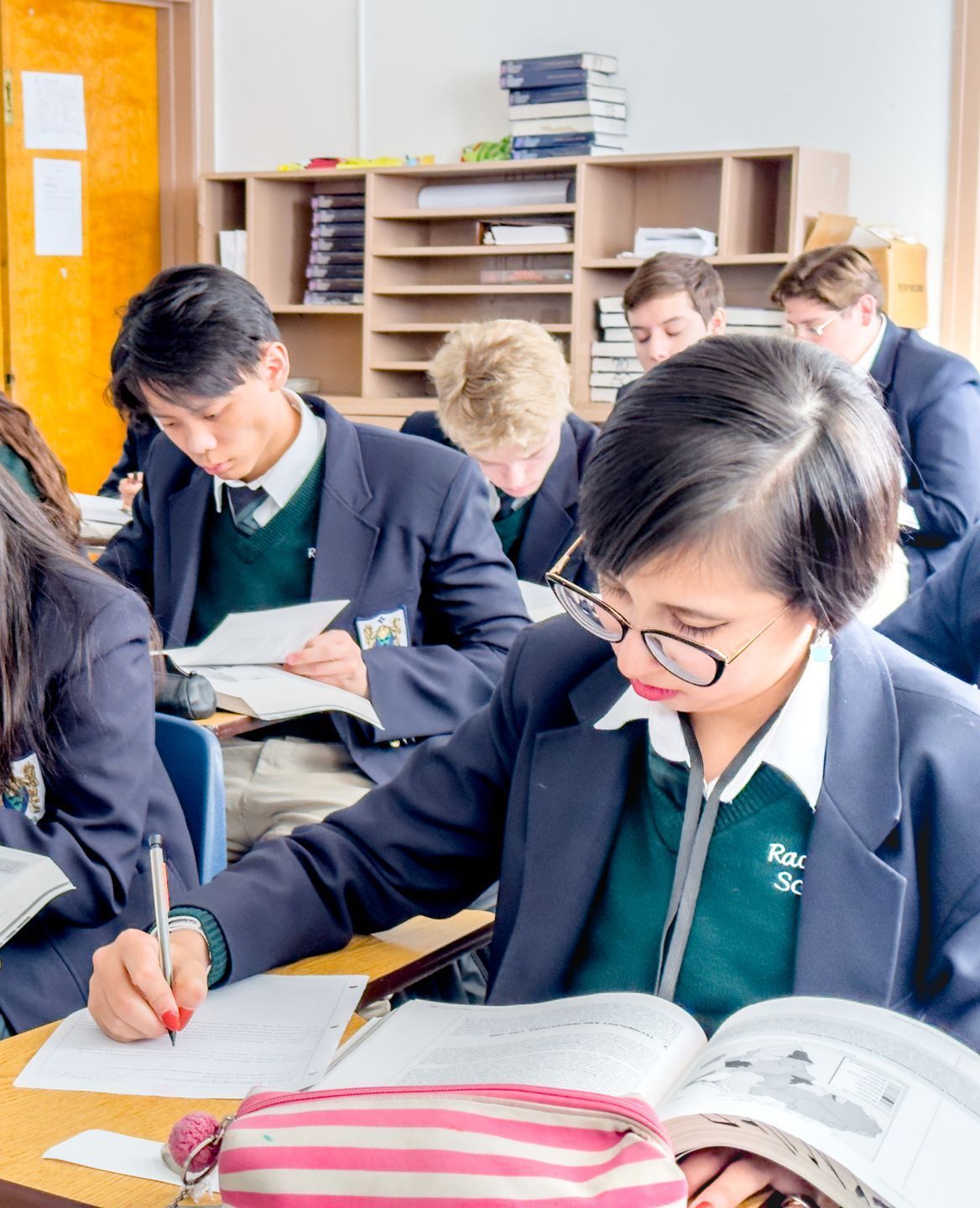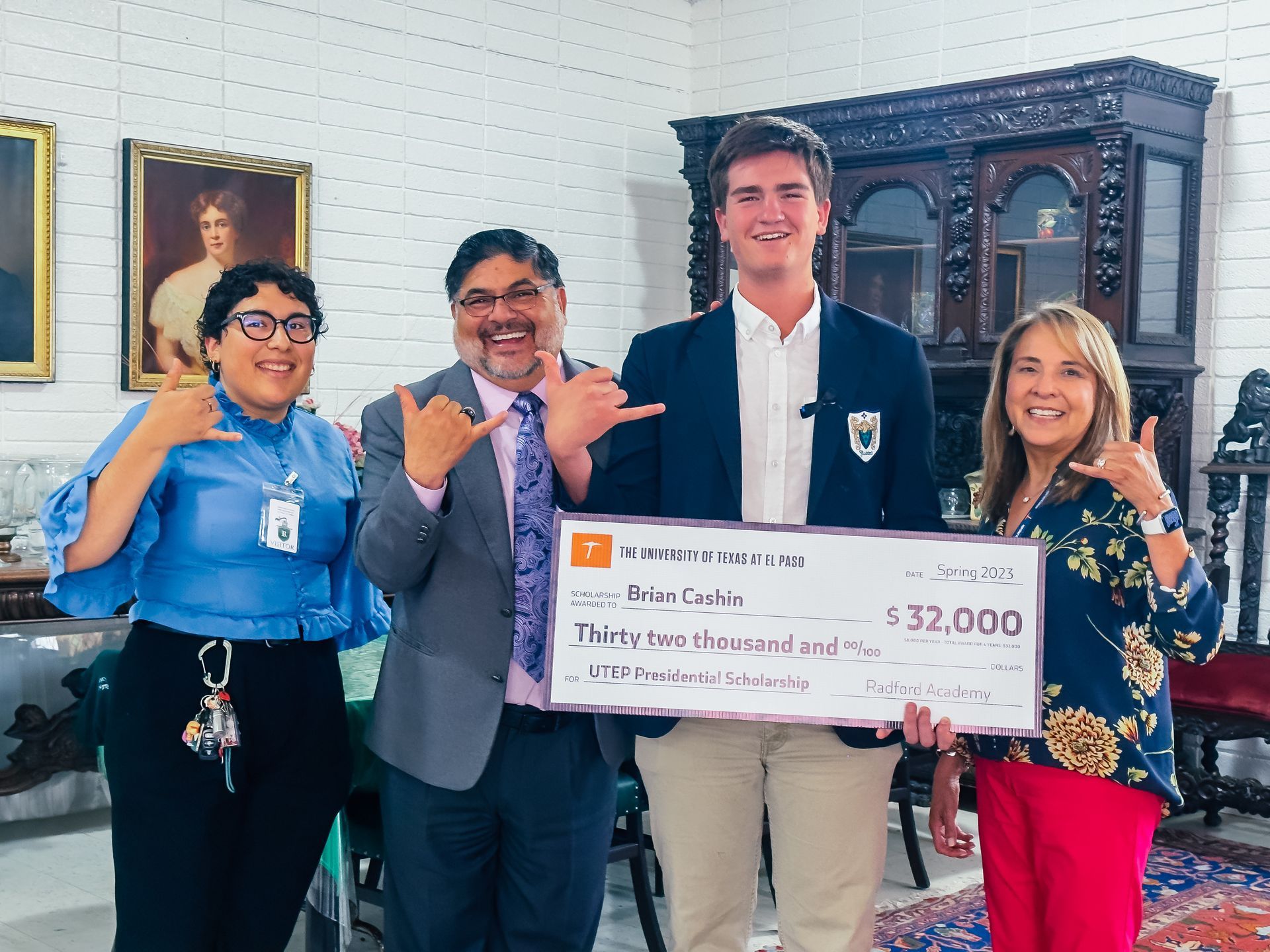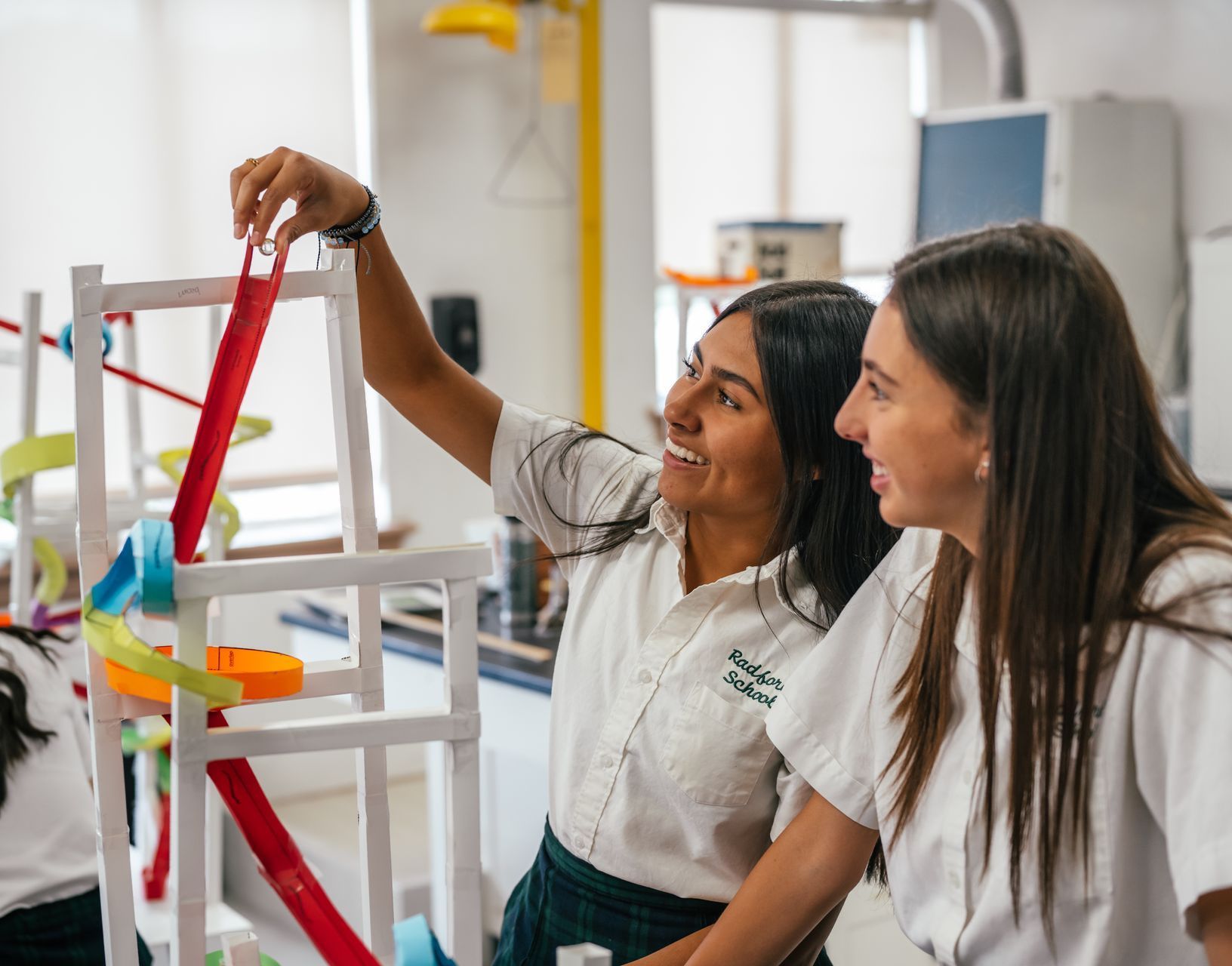A Tradition of Academic Excellence
Radford School's mission is to educate and prepare its young men and women for a lifetime of success.
Advanced Placement (AP) Classes
High school students prepare for a rigorous college curriculum by taking Advanced Placement courses in the Spring. For a listing of all Advanced Placement courses offered at Radford, please visit the High School Academics page.
Foreign Languages
Radford begins preparing students in foreign languages at an early age. Students may take several French, Spanish, and Latin levels in middle school and into high school. Students are also offered AP Latin, AP Spanish, and AP Spanish Literature.
Dual Credit Classes
Dual Credit classes are offered to Juniors and Seniors from Radford. Taking these courses allows them to achieve not only high school credit but also college credit. Radford has a teacher in charge of verifying that students maintain all the dual credit course requirements being offered online.
Fine Arts
Fine Arts have always been an important component of a Radford education. Studies have shown that exposure to art and music helps a student's overall ability to do well.
Outside the Classroom
We also offer educational opportunities outside the school year, such as Curriculum Plus and Summer Camp.
Curriculum Plus – Love to travel? Our curriculum plus program offers an exciting learning environment by visiting cities worldwide in a group environment. During the summer break each year, Radford middle school and high school students take a trip along with parents, teacher chaperones, and a group leader. Previous trips have included such international destinations as London, Paris, Quebec, and Montreal. Elementary students travel locally while still experiencing an exciting learning adventure.
Summer Camp – Through June, Radford students may sign up for a summer camp full of activities and field trips. Radford summer camp is also open to non-students. Please contact the school administration for more information.
DRC(3yrs)
Early Childhood Program
The Early Childhood Program at Radford consists of the Developmental Readiness Class (DRC) for three-year-old children, Pre-Kindergarten for the four-year-olds, and Kindergarten for the five-year-olds. The curriculum for these children is based upon the philosophy supported by current brain research, which states that the skills required to become good readers, writers, and learners are only acquired if a young child has a sound neurological foundation. This ensures that each child will have the opportunity to achieve full potential as he/ she advances through the grades in Radford’s challenging academic setting.
Pre-Kindergarten and Kindergarten
Full-day pre-kindergarten and kindergarten programs are built upon the philosophy that children learn by doing. A normal day is full of varied activities that prepare children for the challenging elementary school curriculum.
Elementary School
In elementary school, integrated language arts and math programs help students develop meaningful connections and understand basic concepts. Teachers emphasize reading, writing, listening, and oral communication.
Middle School
The middle school program emphasizes writing, math, and science skills and includes instruction in physical education, computers, history, music, and studio art.
High School
With a supportive guidance program, the high school's rigorous coursework prepares students for higher education challenges. Radford students consistently gain admission to the nation's most selective colleges and universities, including Harvard, Rice, MIT, Stanford, Princeton, Vanderbilt, the University of Chicago, Baylor, and Colgate, to name a few.
College and Career Readiness
Talk to your counselor about your options after high school graduation. They can assist your parents, and you with college and university information. Working with your counselor will help you be better prepared as you plan for college
School counselors can help you with:
- Career Explorations
- College Admission Assistance
- College Applications
- Financial Aid Information
- Scholarships
- SAT/ACT Registration
*Radford School is not responsible for the content on external sites or servers.
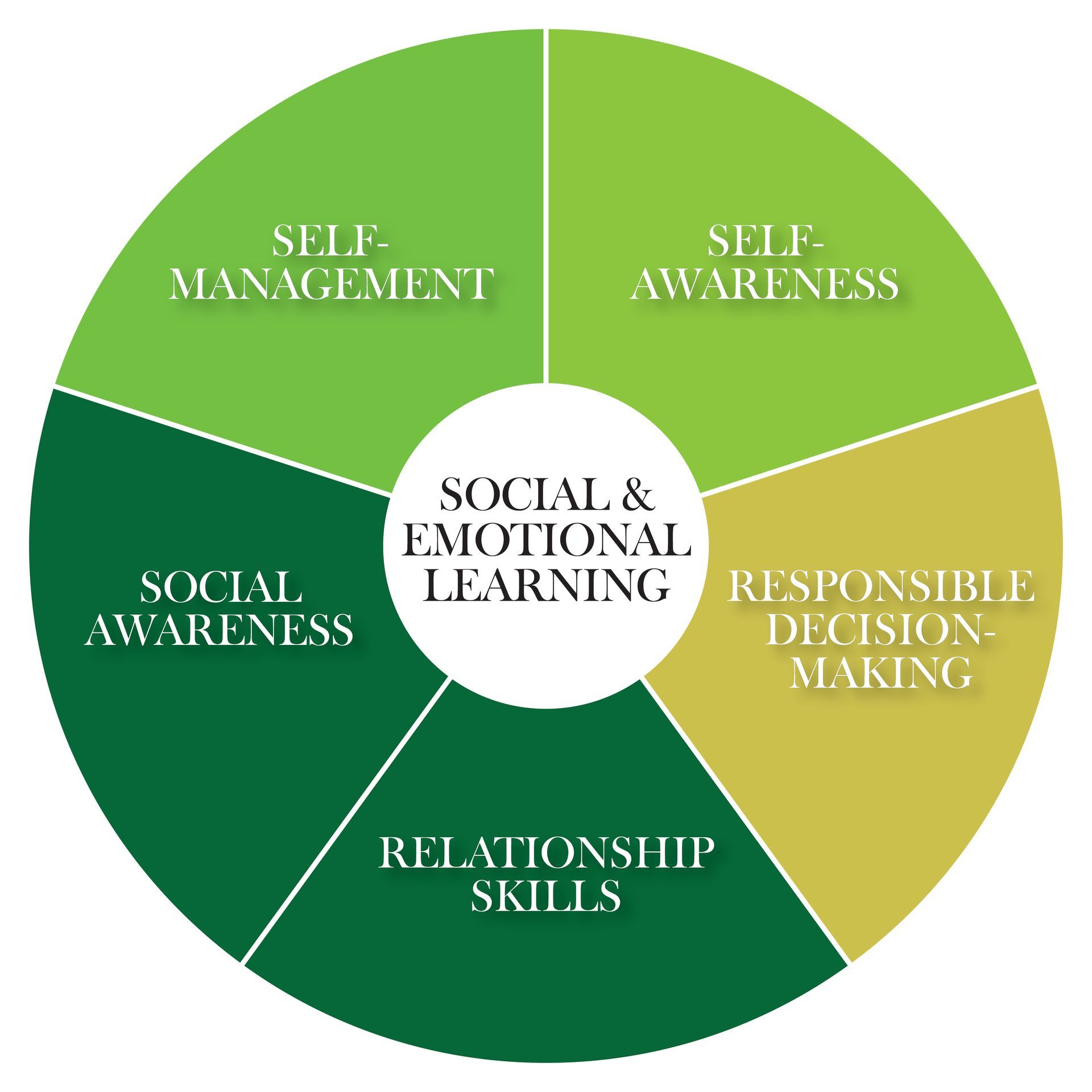
Personal Social Wellness
Fine Arts
We believe that exposure to fine arts helps a student's overall ability to succeed in school.
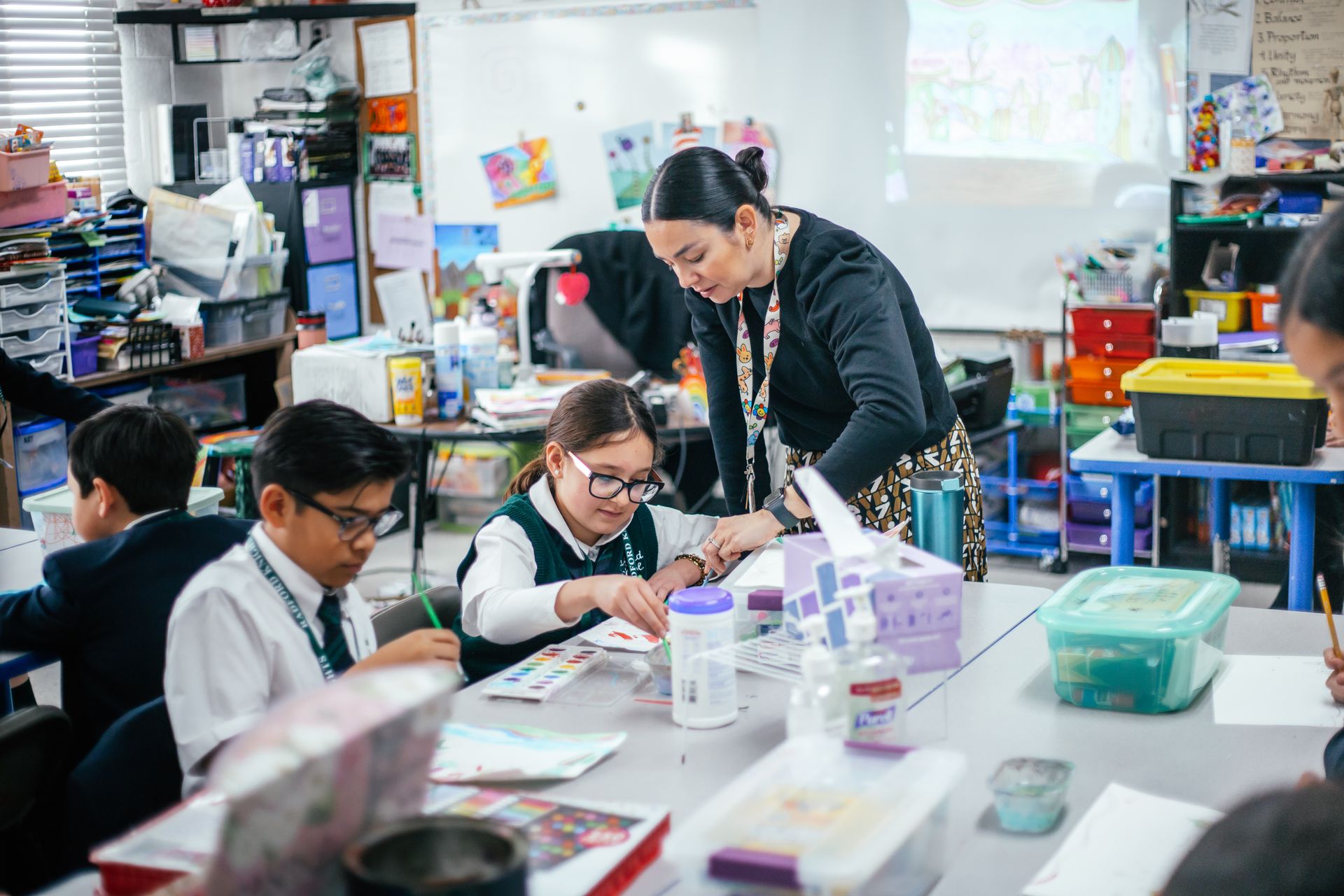
Art
Every student at Radford, from DRC to 12th grade, has the opportunity to take art classes. The classes start with basics for the elementary students and become more complex, moving into learning more advanced information as the students get older. They do more than drawings; students paint, work with printmaking, sculpture, graphic design, and many different art styles. They also learn about artists that have influenced art throughout centuries. The art classroom environment is challenging, educational, and supportive.
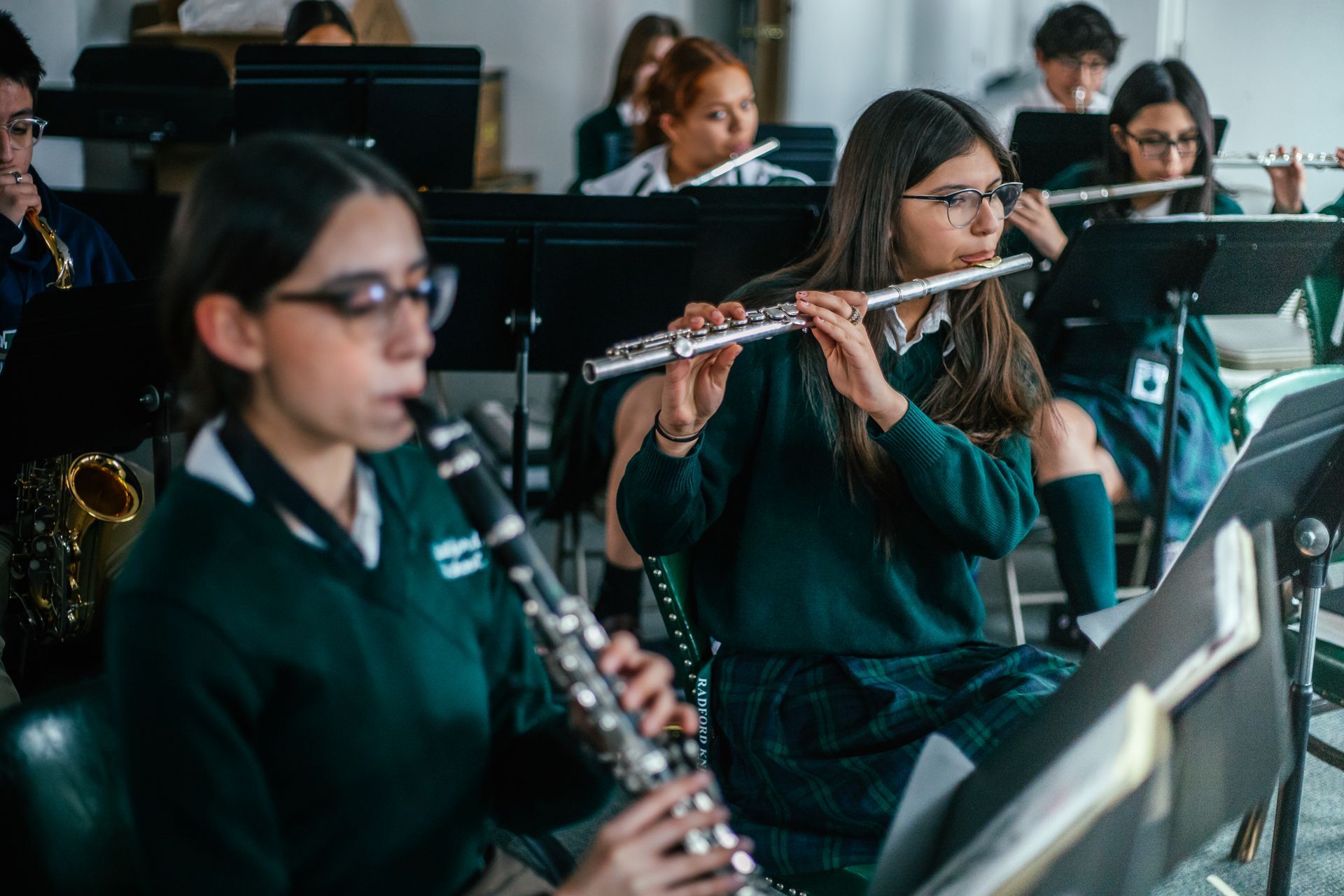
Band
All students, 5th grade and above, are allowed to be in the Radford Band. They choose various instruments, including percussion instruments, trumpet, flute, keyboard instruments, clarinet, saxophone, etc. Band members gain team-building skills, responsibility for their own and others' possessions, and accountability for their progress. The Band performs multiple concerts in and out of school along with competitions throughout the year. Every two years, there is a band trip where the band competes and attends a seminar with professional musicians and composers.
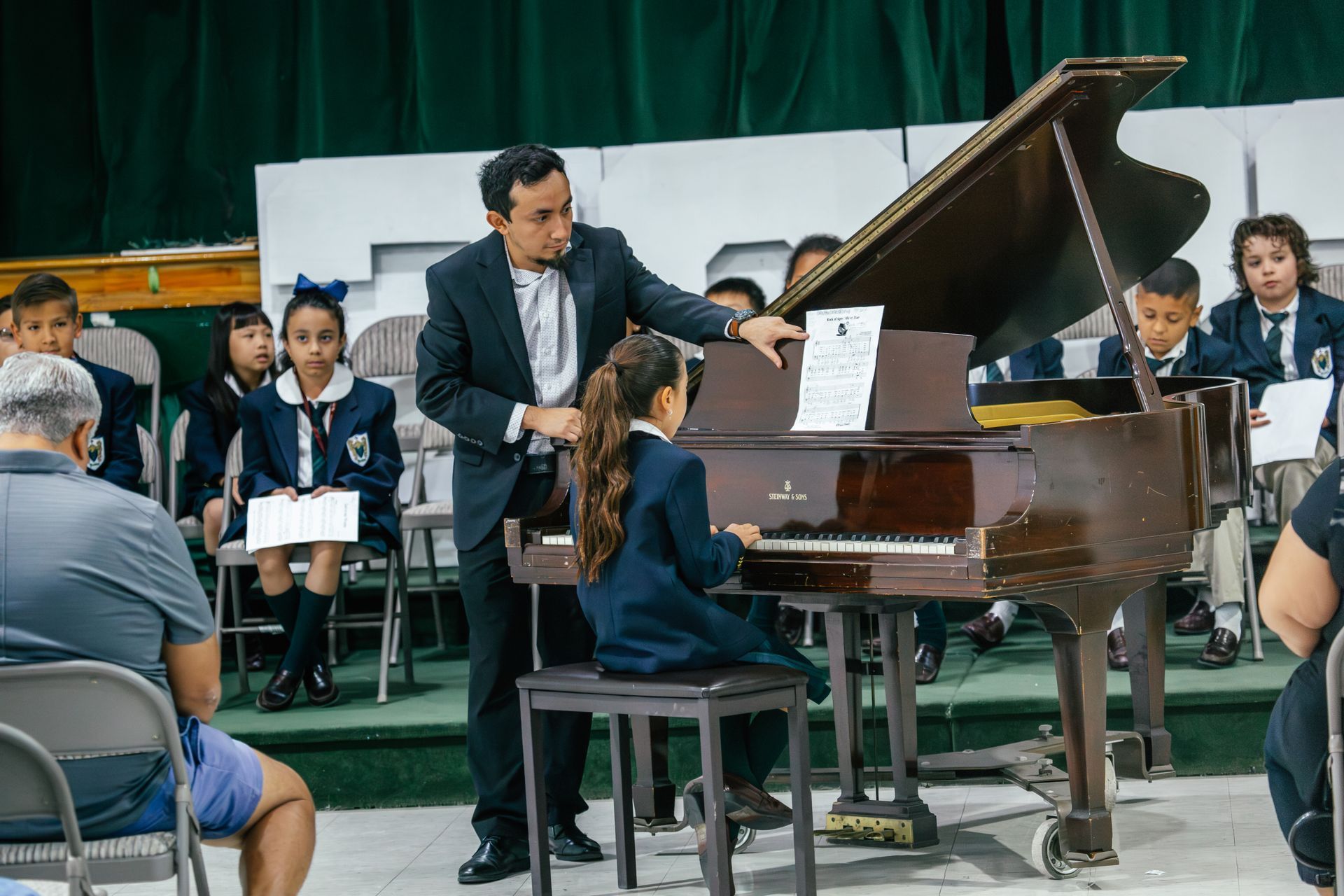
Piano
Radford School offers piano instruction to all students in grades 3rd - 4th. These students learn music theory, rhythm, and basic piano playing skills. The students have piano class 2 times a week, perform a holiday recital and one at the end of the year.

Theatre Arts
The Radford Theatre program encourages students to see a different perspective than their own. We use techniques to learn about the humanity, psychology, motives, and conflicts of characters in any given play. Through character development, improvisation, and team-building exercises, students receive the fundamentals of performing on stage. If the stage is not for them, Radford also offers technical theatre with a concentration in costume design where students can sew by hand and on the machine. They are given the tools necessary to use a pattern and sew a costume for our Fall and Spring productions.
